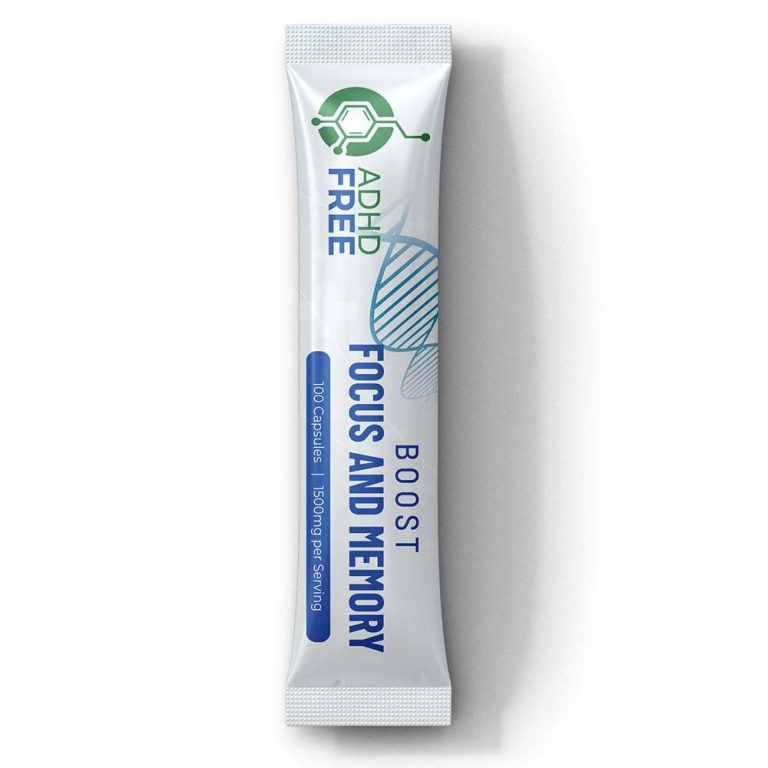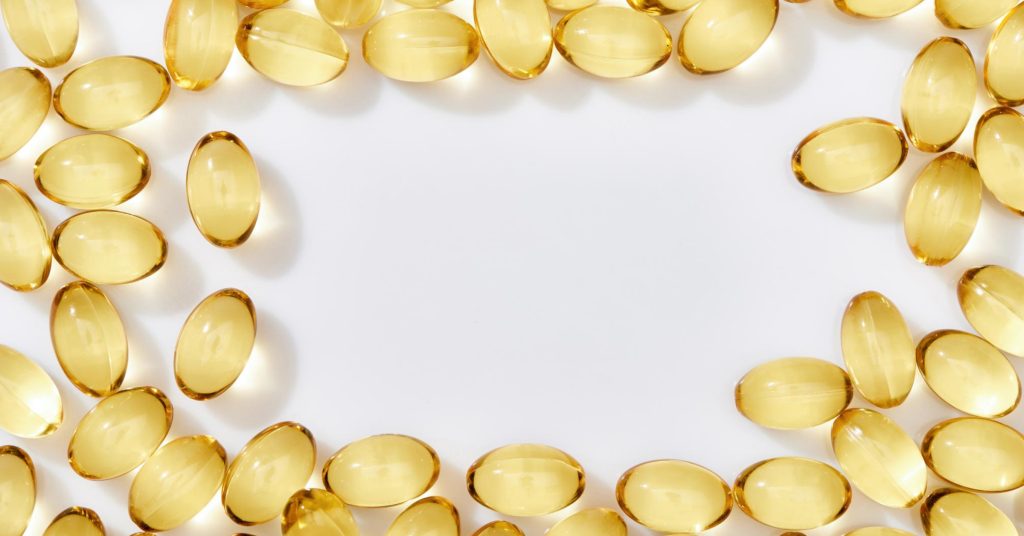Did you know that proper intake of Vitamin B has been linked to improved concentration in individuals with ADHD? If you or a loved one struggle with ADHD, you may be interested in learning more about the potential benefits of this essential nutrient. Discover the surprising connection between Vitamin B and focus.
What is Vitamin B?
Vitamin B is a group of water-soluble vitamins that are essential for our body’s functioning. This group includes:
- B1 (thiamine)
- B2 (riboflavin)
- B3 (niacin)
- B5 (pantothenic acid)
- B6 (pyridoxine)
- B7 (biotin)
- B9 (folic acid)
- B12 (cobalamin)
Each variant of vitamin B has its own unique function, such as converting food into energy, maintaining a healthy nervous system, promoting red blood cell production, and supporting brain function. You can obtain vitamin B through a well-rounded diet that includes foods like meat, fish, eggs, dairy products, and fortified grains. A helpful tip is to incorporate a variety of vitamin B-rich foods into your diet to ensure you meet your daily requirements.
What is ADHD?
ADHD, also known as Attention-Deficit/Hyperactivity Disorder, is a neurodevelopmental condition that affects both children and adults. It is characterized by symptoms such as inattention, hyperactivity, and impulsivity. These symptoms can make it difficult for individuals to focus, organize tasks, and control impulsive behaviors. As a legitimate medical condition, ADHD can have a significant impact on daily functioning, academic performance, and relationships. It is important to understand what ADHD is in order to seek appropriate support and treatment for managing symptoms effectively.
Although ADHD was first recognized as a mental disorder in the early 20th century, it has since evolved in understanding and acceptance. In the past, individuals with ADHD were often stigmatized as troublemakers or deemed lazy. However, with advancements in research and education, there is now a greater understanding of ADHD as a neurological condition that requires specialized treatment and support. Today, ADHD is recognized as a valid medical condition, and individuals with ADHD are encouraged to seek appropriate interventions to help manage their symptoms and improve their overall quality of life.
How Does Vitamin B Affect ADHD?
Vitamin B has the potential to improve concentration in individuals with ADHD. Here are some ways in which Vitamin B affects ADHD:
- Vitamin B6: Aids in the production of neurotransmitters such as serotonin and dopamine, which play a crucial role in attention and focus.
- Vitamin B12: Supports the production of red blood cells and nerve function, both of which can contribute to better cognitive performance.
- Folic Acid: Works alongside Vitamin B12 to produce red blood cells and regulate mood, potentially leading to positive effects on attention and behavior.
- Vitamin B3: Supports brain function and energy production, potentially enhancing cognitive function in individuals with ADHD.
Incorporating foods rich in Vitamin B or taking supplements under medical supervision can be a beneficial addition to ADHD management strategies.
How Does Vitamin B Help Improve Concentration?
Vitamin B can help improve concentration through various mechanisms:
- Vitamin B12 helps produce red blood cells, which carry oxygen to the brain for optimal cognitive function.
- Vitamin B6 supports the production of neurotransmitters, such as dopamine and serotonin, which play a role in focus and attention.
- Vitamin B9 (folate) aids in the synthesis of DNA and RNA, promoting brain cell communication.
- Vitamin B3 (niacin) enhances brain energy metabolism, enabling better concentration.
- Vitamin B5 (pantothenic acid) supports healthy brain function.
Historically, Vitamin B has been used to improve concentration in individuals with ADHD, with positive results reported in studies.
What are the Different Types of Vitamin B?
Vitamin B is a group of water-soluble vitamins that are essential for maintaining good health and well-being. There are eight different types of vitamin B, each with its own specific functions and benefits. These include:
- thiamine (B1)
- riboflavin (B2)
- niacin (B3)
- pantothenic acid (B5)
- pyridoxine (B6)
- biotin (B7)
- folate (B9)
- cobalamin (B12)
Each type of B vitamin can be found in various foods and plays a unique role in the body. For instance, B12 is present in animal products and is crucial for nerve function, while B9 is found in leafy green vegetables and is essential for DNA synthesis.
What are the Signs and Symptoms of Vitamin B Deficiency?
Vitamin B deficiency can have various manifestations in the form of signs and symptoms, which may indicate an insufficient intake or absorption of this essential nutrient. Some common signs include fatigue, weakness, irritability, and difficulty concentrating. Other symptoms may include pale skin, mouth sores, tingling sensations in the hands and feet, and even depression. It is important to be aware of these signs and seek medical advice if you suspect a vitamin B deficiency. A healthcare professional can conduct diagnostic tests to confirm the deficiency and recommend appropriate treatment, such as vitamin B supplements or dietary changes.
What Foods are High in Vitamin B?
Foods that are high in Vitamin B include:
- meat (such as beef, poultry, and seafood)
- eggs
- dairy products (like milk, cheese, and yogurt)
- legumes (such as lentils and beans)
- leafy greens (like spinach and kale)
- whole grains (such as brown rice and quinoa)
- nuts and seeds
These foods are rich sources of various B vitamins, including B1, B2, B3, B6, and B12. By incorporating these foods into your diet, you can ensure that you are getting an adequate intake of Vitamin B and supporting your overall health and wellbeing.
Fact: Did you know that nutritional yeast is also a great source of Vitamin B? This savory ingredient is commonly used as a vegan and vegetarian-friendly alternative to cheese due to its high B vitamin content.
Are There Any Supplements for Vitamin B?
There are multiple supplements available for Vitamin B, providing a convenient option for individuals who struggle to meet their daily requirements through diet alone. These supplements come in various forms, including capsules, tablets, and liquids, and can be readily found in pharmacies or health food stores. It is crucial to select a reputable brand and seek advice from a healthcare professional before beginning any new supplement regimen.
It is important to keep in mind that while supplements can be helpful, they should not be used as a substitute for a well-rounded diet that includes natural sources of Vitamin B.
What Other Benefits Does Vitamin B Have?
Vitamin B offers a variety of benefits beyond just improving concentration in individuals with ADHD.
- Energy production: B vitamins play a crucial role in converting food into energy, supporting overall metabolism.
- Brain function: They promote healthy brain function by supporting the production of neurotransmitters and improving cognitive performance.
- Mood regulation: B vitamins also aid in regulating mood and reducing symptoms of depression and anxiety.
- Heart health: Certain B vitamins, such as B6, B9, and B12, can help lower homocysteine levels and reduce the risk of heart disease.
- Cellular health: B vitamins support DNA synthesis, cell division, and repair, which can lead to healthy skin, hair, and nails.
How Can Vitamin B Help with Other Mental Health Conditions?
Vitamin B can be beneficial for more than just improving concentration in individuals with ADHD. If you are considering using Vitamin B for other mental health conditions, here are some steps to keep in mind:
- Consult with a healthcare professional to determine if Vitamin B is suitable for your specific condition.
- Identify the specific mental health condition you are seeking to address.
- Research the different forms of Vitamin B and their potential benefits for mental health.
- Consider incorporating Vitamin B-rich foods into your diet, such as whole grains, leafy greens, and lean proteins.
- Explore the option of taking Vitamin B supplements, following recommended dosages.
- Monitor your symptoms and overall well-being to assess the effectiveness of the Vitamin B supplementation.
In the early 20th century, Dr. Casimir Funk made a groundbreaking discovery by identifying the first B vitamin, thiamine, while studying the causes of beriberi. This discovery sparked further research on other B vitamins and their impact on both mental and physical health. Today, Vitamin B is recognized as a crucial nutrient with potential benefits for a variety of mental health conditions.
Can Vitamin B Help with Anxiety?
Vitamin B has been researched for its potential benefits in managing anxiety. Studies suggest that specific B vitamins, such as B6, B9, and B12, play a crucial role in the production of neurotransmitters that regulate mood and anxiety levels. These vitamins aid in converting amino acids into serotonin, a neurotransmitter that promotes feelings of calmness and well-being.
While vitamin B alone may not be a cure for anxiety, incorporating foods rich in B vitamins or taking supplements can support overall mental health. It is important to consult with a healthcare professional before starting any new supplements or treatments for anxiety.
Can Vitamin B Help with Depression?
Vitamin B has been studied for its potential benefits in managing depression, although further research is necessary to establish a definitive connection. However, initial evidence suggests that certain B vitamins, specifically B6, B9 (folate), and B12, may play a role in supporting mental health and reducing the risk of depression. These vitamins are involved in the production of neurotransmitters that regulate mood, such as serotonin.
By incorporating foods rich in B vitamins, such as leafy greens, whole grains, and fortified cereals, one may contribute to their overall mental well-being. It’s important to remember to always consult with a healthcare professional before making any changes to your treatment plan. A pro-tip: Maintaining a balanced diet and overall healthy lifestyle are crucial factors in maintaining good mental health.
Are There Any Risks or Side Effects of Taking Vitamin B?
There are generally no significant risks or side effects associated with taking vitamin B as a supplement. However, it is important to consult with a healthcare professional before starting any new supplement regimen. Some individuals may experience mild side effects such as upset stomach, diarrhea, or nausea. High doses of certain B vitamins, particularly B3 and B6, may lead to adverse effects, including nerve damage. Individuals with certain medical conditions or taking specific medications should exercise caution when taking vitamin B supplements. Seeking professional advice is always recommended to ensure safety and effectiveness.
How Can Vitamin B be Used as a Complementary Treatment for ADHD?
Using Vitamin B as a complementary treatment for ADHD can have positive effects on concentration and overall symptoms. If you are considering this approach, here are some steps to follow:
- Consult with a healthcare professional to determine the appropriate dosage and type of Vitamin B supplement for your specific needs.
- Incorporate foods rich in Vitamin B, such as whole grains, leafy greens, and lean meats, into your daily diet.
- Combine Vitamin B supplementation with other ADHD treatments, such as medication or therapy, for a comprehensive approach.
- Keep track of any changes in symptoms and concentration levels to evaluate the effectiveness of Vitamin B as a complementary treatment.
Remember, the response to treatments may vary for each individual, so it is important to work closely with a healthcare professional to find the best approach for managing ADHD symptoms.
Frequently Asked Questions
What is ADHD and how does it affect concentration?
ADHD, or Attention Deficit Hyperactivity Disorder, is a neurodevelopmental disorder that affects a person’s ability to focus, stay organized, and control their impulses. People with ADHD often have difficulty concentrating on tasks, which can impact their daily life and productivity.
How does Vitamin B aid in improving concentration in ADHD?
Vitamin B plays a crucial role in brain function and development. Specifically, Vitamin B6 and B12 have been linked to improved neurotransmitter activity, which helps with focus and concentration. In people with ADHD, these vitamins have been found to increase dopamine levels, which is essential for attention and motivation.
Which specific types of Vitamin B are beneficial for ADHD?
While all types of Vitamin B are necessary for overall health, Vitamin B6 and B12 have shown the most promise in aiding concentration in people with ADHD. These vitamins can be found in foods such as fish, poultry, dairy, and leafy greens, or taken as supplements.
Are there any risks or side effects associated with taking Vitamin B for ADHD?
Vitamin B is generally considered safe and has few side effects. However, some people may experience nausea, stomach upset, or headaches when taking Vitamin B supplements. It is important to consult with a healthcare professional before starting any new supplement regimen.
Can Vitamin B be used as a standalone treatment for ADHD?
Vitamin B should not be used as a standalone treatment for ADHD. While it can aid in improving concentration, ADHD is a complex disorder that requires a comprehensive approach to treatment. It is essential to work with a healthcare professional to develop a personalized treatment plan.
In addition to aiding concentration, are there any other benefits of taking Vitamin B for ADHD?
Studies have shown that Vitamin B may also help with other symptoms associated with ADHD, such as impulsivity and hyperactivity. Additionally, Vitamin B has been found to improve overall mood and energy levels, which can be beneficial for those with ADHD.







